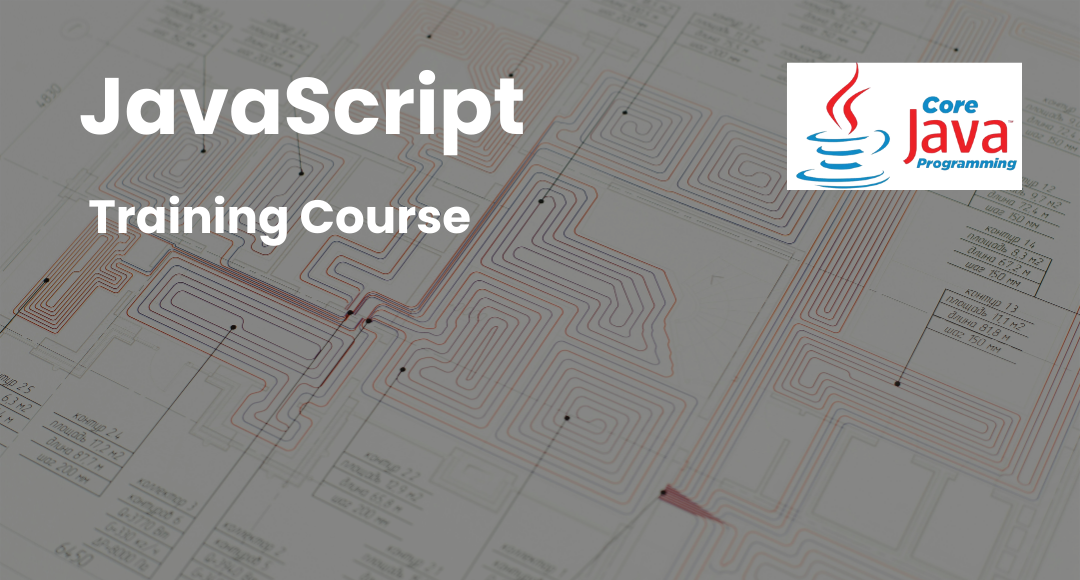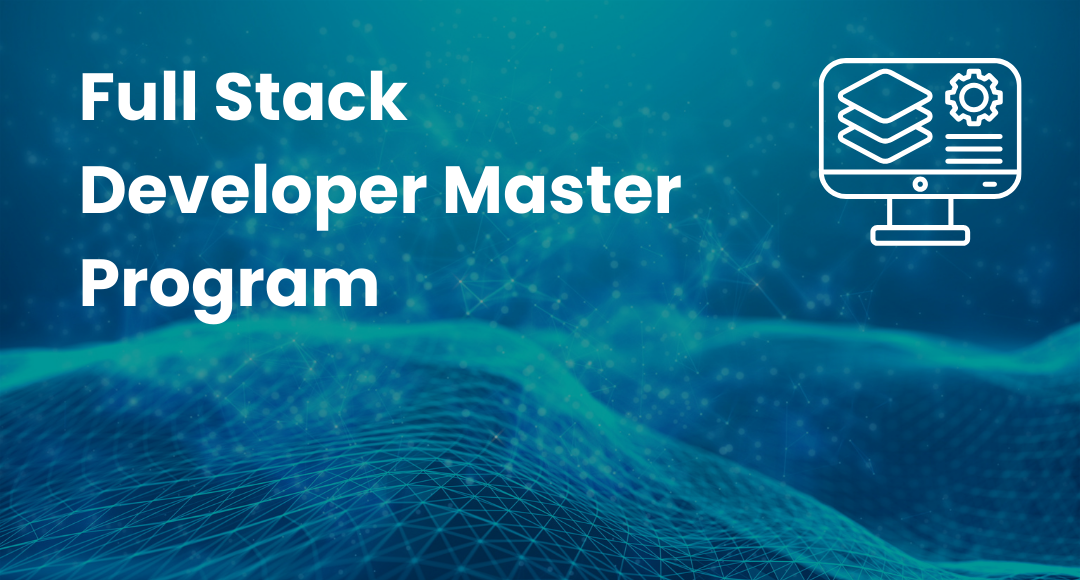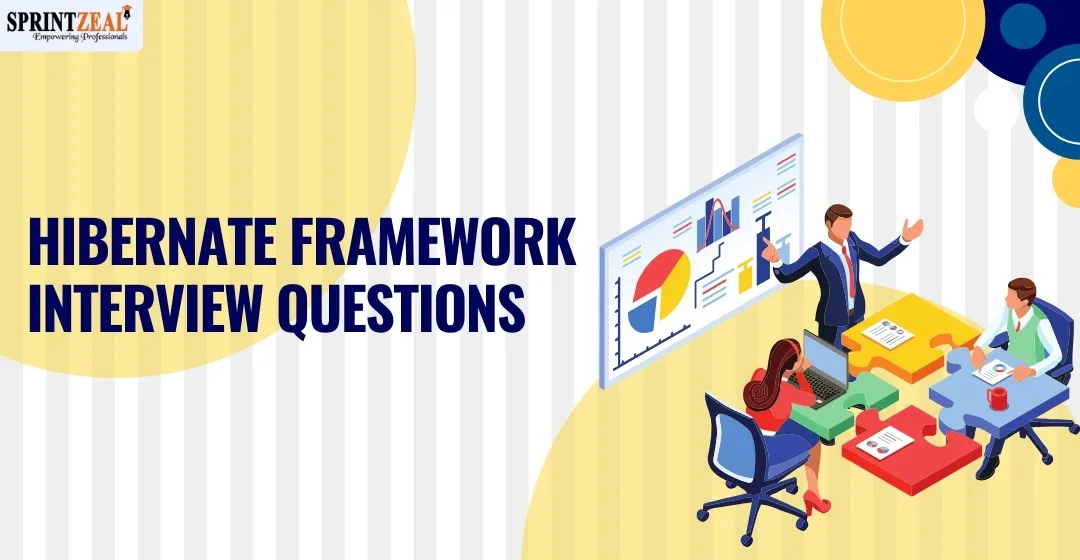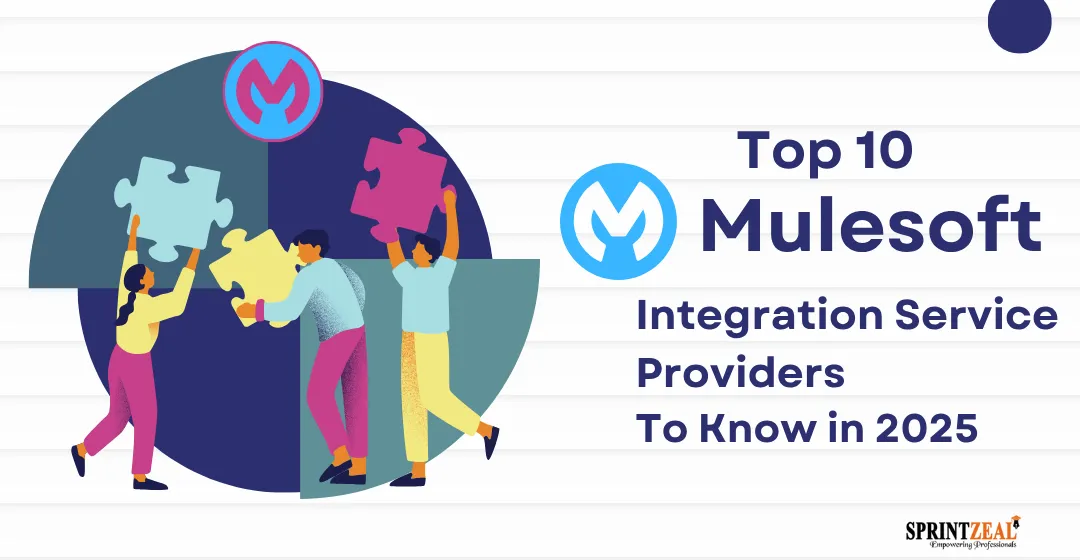Kubernetes Interview Questions and Answers 2026
-
 By Syed Irfan
By Syed Irfan
- Published on Feb 20 2025

Top Kubernetes Interview Questions and Answers 2026
In technical language and terms, one can define Kubernetes (K8s) as an open-source orchestration platform. By utilizing AWS Kubernetes, large amounts of containers can be managed efficiently in cloud environments, allowing developers to scale, automate, and deploy applications seamlessly.
As Kubernetes is an open-source platform, it can be accessed by everyone. There is no need for authentication required like in the case of a closed source platform. However, when it comes to open-source platforms, people tend to back off. And such backing off has a reason.
Most of the open-source platforms are not updated constantly. This is because the users of open source tend to be fewer, and they use these platforms infrequently. Now in the case of open-source platforms like Kubernetes, Java, etc., there is a regular stream of updates. The Kubernetes Interview Questions you encounter often touch upon its continuous development, particularly its role in managing containerized applications within Kubernetes cloud environments.
The reason for such regular updates is that open sources like these are pilgrimages for developers and programmers. So, Kubernetes being an open-source orchestration platform, allows its users to scale, manage, automate, and deploy computer applications.
It was created by Google and presently is being sustained by the Cloud Native Computing Foundation. Kubernetes focuses on managing, scaling, and operating containers of applications, including those on AWS Kubernetes and Kubernetes cloud platforms. In order to become the maestro of Kubernetes let us discuss some of the top-notch interview questions of Kubernetes to increase your chance to excel as a developer.
This article lists the most commonly asked Kubernetes Interview Questions and Answers.
The Kubernetes interview questions in this article are categorized on the basis of
- Kubernetes Foundational Questions and Answers
- Kubernetes Architectural Questions and Answers
- Kubernetes Questions and Answers – Scenario-Based
We have categorized all the questions for the betterment of your understanding. Further in this article, we will discuss in detail important definitions, differences, and theories.
Table of Contents
Foundational Kubernetes Interview Questions and Answers
Kubernetes Interview Questions and Answers – Set 1
All the Kubernetes Interview Questions are designed and well patterned to stimulate your conceptual understanding of all the terms of Kubernetes.
Now let’s get started with Basic Kubernetes Interview Questions and Answers,
1) Differentiate between Kubernetes and Docker Swarm.
Kubernetes and Docker Swarm differ primarily in their complexity and usage scenarios. Kubernetes excels in handling complex, high-demand applications with intricate configurations, providing an efficient solution for container management.
However, Docker Swarm is more user-friendly. It offers simplicity and ease of use, making it ideal for smaller applications that need quick deployment and straightforward management.
2) Explain Kubernetes (K8s).
The Kubernetes (K8s) was designed and developed by Google. It can be defined as an open-source orchestration tool. In other words, Kubernetes is an open-source container manager. It helps the user to organize, scale, and automate many large containers.
As it is developed by Google it doesn’t have to prove its excellence. In layman's terms, we can call Kubernetes a solution for the management of multiple containers.
3) Define the relation between Kubernetes and Docker.
Docker delivers a facility to manage the lifecycle of a container, while it also helps in building the run-time container. Well, Docker may help in building run-time containers and so on but the Docker container cannot communicate. These containers need a platform to communicate.
This is where Kubernetes plays a crucial role in arranging communication between the Docker containers.
4) Describe Container Orchestration.
There are certain micro-services provided to every application. And those micro-services can serve only when they are synchronized well. The synchronization of the micro-services is highly important, in order to run any application in a seamless manner.
In such cases container orchestration comes into play, in layman's terms, orchestration is known as the fusion of different types of instruments to produce a great piece of music.
The role of container orchestration is to fuse different components of an application to deliver a smooth service.
5) What is the necessity of Container Orchestration?
A number of micro-services are installed in the container of an application. Without the micro-services, the application can’t perform specific functions. The containers that contain the micro-services can only work when they communicate with each other.
Here inter container communication is necessary to perform certain activities in the application. In such conditions, the container orchestration tool comes into play.
The container orchestration basically synchronizes all the containers containing micro-services.
Kubernetes Interview Questions and Answers – Set 2
6) Explain the process of simplification of containerized deployment with Kubernetes.
Every application contains a group of containers that tend to run across a number of hosts. Well in order to perform well, these containers need to communicate with each other.
And the communication of these containers is possible by means of Kubernetes. Kubernetes is basically cloud-agnostic and is designed in a certain way to allow communication between multiple containers. And this is how the deployment of containers takes place.
7) Define the clusters in Kubernetes.
Basically, K8s is designed in such a manner that it allows the developers to feed cluster services and each service is designed according to a certain configuration.
After feeding the cluster services with the desired codes and commands, then the cluster will automatically run configuration in the infrastructure.
8) Define the Google Container Engine.
The Google Container Engine can be defined as the Open-source manager for Docker and the related clusters. The GKE or Google Container Engine is basically an engine that supports clusters that run in the public cloud services of Google.
9) Define Heapster.
Kubelet provides data and this data runs on each node. But these data needs are needed to be aggregators.
This is where the Heapster comes into play and aggregates all data that are supplied by the Kubelet. Now this container is generally supported by the cluster of Kubernetes and it runs like a pod.
Then it finds all other clusters and examines the information used from the nodes of Kubernetes. This is done with the help of a non-machine agent.
10) What do you mean by Minikube?
The Minkube can be defined as the tool that helps to run Kubernetes in a localized manner or locally. This in return leads to running Kubernetes on a virtual machine.
Minikube is a tool that enables developers to set up and run a Kubernetes cluster locally on their devices. It simplifies Kubernetes deployment in environments where a full cloud-based cluster isn't needed, allowing easier exploration of functionalities without managing complex infrastructure.
11) Define Kubectl?
The kubectl can be defined as a platform that can be used to pass the commands to the cluster. In other words, it delivers commands to the CLI to run against the Kubernetes clusters.
Kubectl allows users to deploy apps, inspect and manage resources, see logs, and troubleshoot issues. It links users to the Kubernetes API server, providing precise control over cluster operations and enabling users to interact with the entire Kubernetes ecosystem.
Architectural Kubernetes Interview Questions And Answers
Let’s get into architectural Kubernetes Interview Questions and Answers, These are the questions that are based on the architectural point of view.
1) Define the various components of Kubernetes Architecture.
Basically, there are 2 components of Kubernetes and those are master nodes and worker nodes. Further, these nodes have different components to support Kubernetes.
Components of Master Nodes
- Kube-controller: Ensures the desired state of the cluster is maintained by managing resources.
- Kube-manager: Oversees node operations, maintaining the cluster's health and scalability.
- Kube-API server: The central hub for communication between users, pods, and the cluster control plane.
- Kube-scheduler: Allocates workloads to available nodes based on resource requirements.
Components of Worker Nodes
- Kubelet: Agent that runs on each node, ensuring containers are running in a pod.
- Kube-proxy: Manages network traffic, and routing requests between services and pods in the cluster.
2) Explain Kube-proxy.
The Kube proxy is a component of worker nodes. The Kube proxy goes through each node and runs in them. It helps in TCP/UDP packet forwarding transversely back-end network services.
Eventually, the proxy of the network or network proxy is configured in the Kubernetes API in every single node. Finally, the cluster IPs and ports are supplied by the compatible environment variables of docker. These clusters are opened by the proxy.
3) Describe how the master node works in Kubernetes.
The Kubernetes master node is basically designed to control the master node and each node contains a number of containers. These containers are stored and secured as pods. And further, those pods have the capacity to store multiple containers at a time.
All the containers are stored in the pods in accordance with the requirements and certain configurations.
Further, when the pods are used they could be organized and deployed with the help of a command-line interface or user interface. The scheduling process of the pods is carried out.
The pods are scheduled on the master node according to the requirement of the resource. Ultimately the communication is established between the Kubernetes nodes and master components.
4) What do the Kube-apiserver and the Kube-scheduler do?
Role of Kube-apiserver
Kube-apiserver can be defined as the front end of the control panel of the master node. It goes along the scale-out architecture. It helps to expose all the components of Kubernetes Master Nodes.
It plays a significant role in finding communication between master node components and nodes of Kubernetes.
Role of Kube-scheduler
The Kube-scheduler performs the distribution of workload. It also helps in the management of workload. It performs all such activities in the worker's node.
It can choose an appropriate node. And in that node, the unscheduled pods run. The pods run according to the requirements of the resources. And when the pods run, it keeps a record of the utilization of resources.
5) Briefly Explain Kubernetes Controller Manager.
In the master node, many types of controllers are accumulated all together to work as one procedure. These controllers are called the Kubernetes Controller Manager.
The basic function of the Kubernetes controller manager is to embed controllers and generate namespace and garbage collection. It establishes communications with the API server and helps in the management of end-points.
There are basically 4 different types of Kubernetes controller managers that run on the master node:
- Replication Controller
- Node Controller
- Endpoints Controller
- Service Account and Token Controller
Kubernetes Interview Questions and Answers – Set 3
Let’s take a look at some technical Kubernetes Interview Questions and Answers,
6) Define ETCD.
ETCD can be defined as the distributed key-value store which establishes a relation between the distributed works. The ETCD is basically written in a specific language that is called a GO programming language.
Its main function is to accumulate the configuration information of the cluster of Kubernetes. This helps it to represent the form of the cluster at any time.
7) Describe Kubernetes Load Balancer and explain the function of Ingress Network with a definition.
There are many different ways to expose services but the load balancer is one of the most ideal ways to expose service.
Ingress networks can be defined as a series of rules, that play the role of an entry point to the Kubernetes cluster.
Further, it permits incoming connections, and these connections are configured later to provide services through different mediums like URLs that can be reached, load traffic balancer, or can also be configured through name-based virtual holding.
There are various services present in clusters and Ingress is an API object that allows access to the services present in the clusters. And this is possible by making use of HTTP, further, it is one of the meticulous ways to expose services.
8) What do mean by Cloud Controller Manager?
There are certain important roles of the Cloud Controller Manager to maintain the residing cloud services in Kubernetes. The Cloud Controller Manager plays a significant role in routing the network, maintaining consistent storage, and management of communication with the pre-existing cloud-based services further, it also helps in abstracting the codes, particularly for Cloud Controller Manager from the primary specific code of Kubernetes.
It is categorized into various types of cloud containers. Each container can be used on the basis of a particular Cloud Controller Manager platform.
Further, it permits cloud sellers to develop Kubernetes codes. Here it is also considered that the Kubernetes code can be organized and deployed without depending on any of the platforms of the Cloud Controller Manager.
In order to do so the cloud vendors or sellers, first, take time to develop a specific code. After developing a code these vendors connect with the Kubernetes cloud controller manager while running the Kubernetes.
9) Define and explain Container resource monitoring.
It is important for the user for users to keep track of an application’s performance. One of the common criteria that are considered to do so is by checking the utilization of resources at different levels of abstraction. Kubernetes has developed cluster management by producing abstraction at various levels such as containers, pods, whole clusters, and services.
All these activities together can be called container resource monitoring.
10) Differentiate between Replica Set and Replica Controller.
There is not much of a difference between the Replica set and the Replication controller. They have nearly the same types of functions. The basic difference is observed when it comes to the utilization of selectors for pod replication.
In the case of the Replica set, set-based selectors for replication of pods. Whereas the replication controllers make use of equity-based selectors.
11) Can you define Headline Service?
The services that do not have cluster IPs are called headless services. These services allow the user to go to the pods directly. These services can let the user reach pods by going through a proxy. Instead, headless services enable direct contact with individual pods, making them excellent for scenarios in which clients must connect to specific pods directly rather than through a load balancer.
In headless services, the service's DNS resolves to pod IPs, allowing you to circumvent the proxy that is generally used in standard Kubernetes services. This is especially beneficial in stateful systems like databases, where each pod needs to be individually addressable.
12) Discuss Federated Clusters.
A federated cluster is a tool that permits the user to manage numerous Kubernetes clusters as a single cluster. Hence the federated cluster allows the user to create many clusters within the data cloud and manages these data all together in one place.
Kubernetes Interview Questions and Answers - Scenario-Based
Let’s talk about some scenario-based Kubernetes Interview Questions and Answers.
The interviewers often provide applicants with various scenario-based questions regarding Kubernetes. By doing so, they observe the in-ground experience and core knowledge of the applicants to solve certain issues that may arise in reality.
In this section, we have discussed 5 different scenarios that are going to arise while working with Kubernetes and we have also discussed the possible solutions of these scenarios.
Kubernetes Interview Questions and Answers – Set 4
Scenario 1- for instance, a company designs and develops a monolithic architectural handle for multiple products. Further, the architectural handle creates issues due to the expansion of the present day’s scaling industry.
What are your thoughts about how the company will shift from monolithic to microservices and deploy the containers for the services?
Yes, indeed it is possible for a company to jump or shift from monolithic architectural handles to micro-services.
In order to do this, they have to start designing new plans and implementing those plans to construct micro-services one by one. After constructing the desired micro-services they can easily switch over the background configuration. After the configuration is completed they can place each micro-services onto the Kubernetes platform.
At first, they will have to introduce some of their micro-services on the Kubernetes platforms. Then they will have to observe the functionality of the same.
After finding everything running smoothly, they can completely put all their applications on the Kubernetes platform.
Scenario 2-Suppose there is an MNC that has a highly distributed system that comprises a huge variety of data clouds, a large number of employees, and multiple virtual machines.
Share your thoughts about how such an MNC can manage consistency in the work with the help of Kubernetes.
In general, there are many IT sectors that introduce numerous containers with multiple tasks that run through numerous nodes all over the world in an evenly distributed manner.
As MNCs, they have the power to utilize anything that will supply them with agility, top-notch capabilities, and practices of DevOps the applications based on cloud services. Now they can move forward to schedule architecture and they can also get support for various container formats by using the Kubernetes platform.
Ultimately it solves their issue of maintaining work consistency.
Scenario 3- Suppose a company is planning to increase its competence and rate of performing technical operations with minimum cost.
What are your thoughts on how the company can manage to do so?
In such a scenario it will be easy for the company to develop a CI/CD pipeline by making use of a methodology like DevOps. But they will face problems in configuring and running the pipeline.
So after constructing the CI/CD pipeline, they can opt for carrying out later operations in the cloud platforms like Kubernetes. By working on the Kubernetes cloud platform they will not only get their job done at a low cost but will also save much time on deployment.
Scenario 4- For instance, a company is planning to revisit its methods for deployment and desires to construct a platform that will be highly accessible and receptive.
Share your thoughts on how the company could attain its goals.
To supply their customers with a digital experience, they will hope that the company lacks a scalable platform. This is necessary to obtain data from the website of a client.
In order to do so, they will have to migrate from private data centers to any cloud platform. But before going to work on the cloud platform they need to prepare and produce various micro-services for their applications.
After landing on the cloud platform, they can make use of any available open-source orchestration platform like Kubernetes. This in return will promote building different types of apps and delivering the same as soon as possible.
Scenario 5- Let’s look into a scenario where a company aims to distribute workloads with the help of trending technologies.
What are your thoughts on this, do you think that this is possible?
Well yes, this is indeed possible, and to do so the company should consider using Kubernetes. K8’sis designed to optimize and manage resources systematically. It can specifically manage resources for specific types of applications. And with such an orchestration tool, this problem can be solved with ease.
Here is the list of top Kubernetes Interview Questions and Answers.
Conclusion
So these are the top interview questions of Kubernetes, and these are the most frequently asked Kubernetes Interview Questions. We hope this article helped you to prepare well for your interview.
For cloud computing training and certification-related details, you can chat with our course expert and get instant help or you can email us your queries and get detailed guides.
Beyond these Kubernetes interview questions, there are plenty of other valuable JavaScript interview questions worth exploring.
To explore cloud computing courses offered by Sprintzeal, you can download the Sprintzeal App and start learning or visit our E-learning portal.
High-Paying and Popular Cloud Computing Certifications
AWS Solution Architect Certification
Popular Programs
Trending Posts
Understanding LMS: The Go-To Guide
Last updated on Jul 18 2025
JIRA Software – Uses, Purpose and Applications
Last updated on Nov 17 2025
Linux Interview Questions and Answers 2026 (UPDATED)
Last updated on Aug 24 2022
Hibernate Framework Interview Questions and Answers (2026)
Last updated on Sep 30 2025
Top MongoDB Interview Questions for 2026
Last updated on Oct 16 2025
10 Best Mulesoft Integration Service Providers in 2026
Last updated on May 27 2025
Categories
- Other 81
- Agile Management 48
- Cloud Computing 58
- Project Management 175
- Data Science 70
- Business Management 89
- Digital Marketing 88
- IT Service Management 36
- Programming Language 61
- AI and Machine Learning 94
- IT Security 113
- Quality Management 78
- IT Hardware and Networking 27
- Microsoft Program 5
- Workplace Skill Building 15
- Risk Management 10
- Information Security 8
- Leadership and Management 10
- Corporate Training and Development 1
Trending Now
Top 25 Java Interview Questions and Answers in 2026
ArticleJIRA Software – Uses, Purpose and Applications
ArticleJava Interview Questions and Answers 2026 (UPDATED)
ArticleLinux Interview Questions and Answers 2026 (UPDATED)
ArticleTop Docker Interview Questions And Answers 2026
ArticleSQL Interview Questions and Answers 2026
ArticleLatest HTML Interview Questions and Answers 2026
ArticleC# Interview Questions and Answers - UPDATED 2026
ArticleHTML 5 Interview Questions and Answers 2026
ArticleJAVA Scanner Class Guide 2026
ArticleTop React Interview Questions and Answers
ArticleBest Python Interview Questions and Answers 2026
ArticleTop Tableau Interview Questions and Answers 2026
ArticleTest Manager Interview Questions and Answers for 2026
ArticleMost Trending Programming Languages in 2026
ArticleGuide to Becoming a Salesforce Developer
ArticleWeb Developer Certifications Trending in 2026
ArticleProgramming Certifications that Pay Well
ArticleTop 5 Python Certifications - Best for 2026
ArticleOOPs Interview Questions and Answers
ArticleTop Git Interview Questions and Answers [Updated 2026]
ArticleManual Testing Interview Questions and Answers 2026
ArticleJavaScript Interview Questions and Answers 2026 (Update)
Article15 Spring Boot Interview Questions and Answers (2026 Update)
ArticleBest Programming Language to Learn in 2026
ArticleOOPs Concepts in Java: Basics, Characteristics and its Examples
ArticleTop 20 Microservices Interview Questions and Answers
ArticleTop Oracle Interview Questions and Answers
ArticleTop MongoDB Interview Questions for 2026
ArticleHow to Become a Full-Stack Developer: A Step-by-Step Guide
ArticleTest-Driven Success: How Jenkins Turns TDD into a Breeze!
Article10 Best Mulesoft Integration Service Providers in 2026
ArticleHow to Become a Laravel Developer in 2026: A Step-by-Step Roadmap
ArticleCan Low-Code Platforms Really Save Time and Costs in IT Projects?
Article5 Programming Languages That You Should Learn
ArticleUnderstanding LMS: The Go-To Guide
ArticleUnderstanding APIs: What You Need To Know
ArticleJava OOPs Interview Questions and Answers (2026)
ArticleTop AngularJS Interview Questions and Answers (Freshers & Experienced)
ArticleTop Mobile Testing Interview Questions and Answers for 2026
ArticleAndroid Interview Questions 2026
ArticleSpring Interview Questions With Answers (2026)
ArticleShell Scripting Interview Questions
ArticleHibernate Framework Interview Questions and Answers (2026)
ArticleLatest LINQ Interview Questions and Answers for Freshers & Experienced
ArticleComprehensive PHP Interview Questions and Answers for 2026
ArticleTop jQuery Interview Questions and Answers (2026 Guide)
ArticleHow to Select a Rust Development Company with Expertise in Cloud and Embedded Systems?
ArticleMaster Node.js: Your Ultimate Interview Preparation Guide for 2026
ArticleLaravel Interview Questions and Answers for Successful Preparation
ArticleTop Development Companies for Logistics and How to Choose the Right One
ArticleHow to Become a Python Developer: Master Key Skills & Explore Career Paths
ArticleHow to Become an SQL Developer: A Complete Step-by-Step Guide
ArticleWhat is Full Stack Development? Understanding the Basics and Beyond
ArticleHow to Become a UI/UX Designer
ArticleSoftware Developer Job Description: Key Roles, Skills and Responsibilities
ArticleTop Tech Skills You Need to Succeed in the Future
ArticleWhat Is JavaScript? Definition, Meaning, Uses & How It Works
ArticleWhat Is HTML5?
ArticleWhat Is DevOps? A Complete Guide to DevOps Principles, Tools, and Benefits
Article







